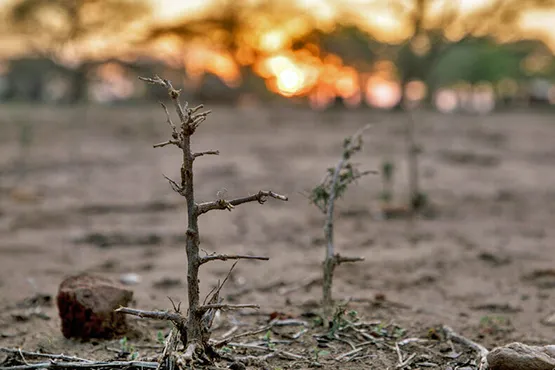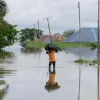The latest report from the Lancet Countdown team has soundly warned that the world is heading in the wrong direction in addressing the growing health impacts of the climate crisis. The report highlights the catastrophic consequences of inaction, with heat-related deaths soaring, dangerous bacteria spreading along coastlines, and economies struggling as people struggle to work and food production shrinks. The world’s most vulnerable populations, including those in low-lying coastal areas and small island developing states, are particularly at risk.
One of the most alarming findings is the rise in heat-related deaths among those over 65, who are more susceptible to the effects of heatwaves. These deaths have increased by 85% since the 1990s, and without the global temperature rise, such deaths would have only increased by 38%. The report also notes that the highest global temperatures in over 100,000 years were recorded in 2023, and that the current 10-year mean heating of 1.14C above pre-industrial levels is already having a profound impact on human health.
The report’s authors, comprising 114 experts from 52 research institutions and UN agencies, stress that the health impacts of climate change are being felt today, and that inaction will only lead to more devastating consequences in the future. They warn that a 2C hotter world will see a significant increase in heat-related deaths, lost work hours, and food insecurity. The report also highlights that economic losses resulting from extreme weather events have increased by 23% since 2010-14, with an estimated value of $264bn in 2022.

Despite these alarming findings, the report also notes that there are some signs of progress. Deaths from fossil fuel-derived air pollution have fallen by 16% since 2005, and global investment in clean energy grew by 15% in 2022, exceeding fossil fuel investment by 61%. Additionally, 90% of the growth in electricity capacity in 2022 was due to renewable energy.
UN secretary-general António Guterres stressed that there is no excuse for delay, and that the world is already seeing a human catastrophe unfolding. Dr Marina Romanello, executive director of the Lancet Countdown at University College London, echoed these concerns, stating that the pace and scale of mitigation efforts have been woefully inadequate, and that the human cost of inaction is unacceptable.
The report’s findings have sparked concerns about the lack of progress in reducing greenhouse gas emissions and the continued investment in fossil fuels. Dr Georgiana Gordon-Strachan, director of the Lancet Countdown regional centre for Small Island Developing States, criticized rich nations for failing to deliver on their pledge to provide $100bn a year to help vulnerable countries cope with the climate crisis.
As the world prepares for Cop28, which will hold its first Health Day focused on the links between the climate crisis and human health, the Lancet Countdown report serves as a stark reminder of the urgent need for action. The clock is ticking, and the consequences of inaction will be devastating. We can no longer afford to delay and must take immediate action to mitigate the impacts of climate change on human health and livelihoods.

